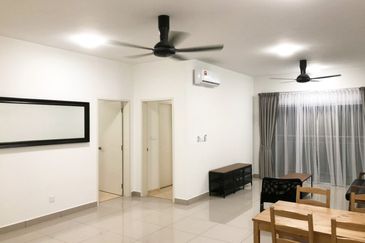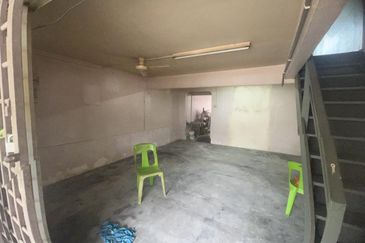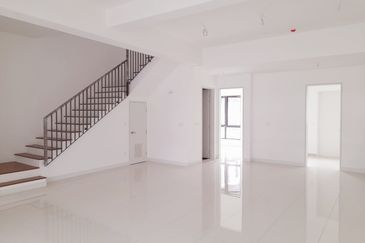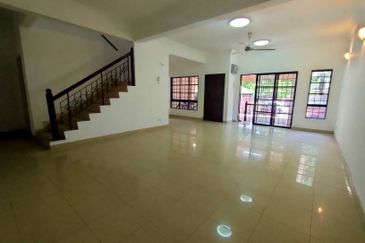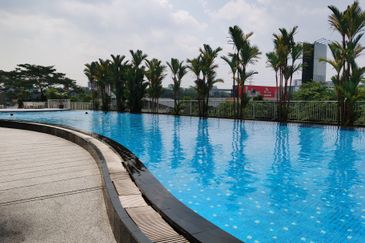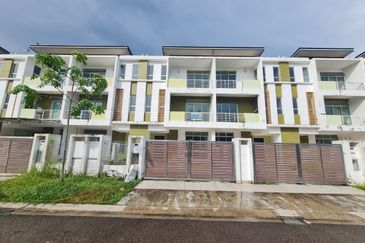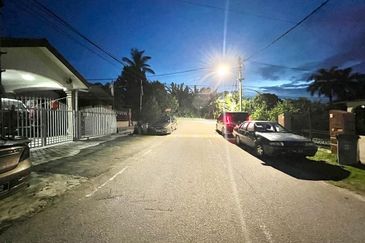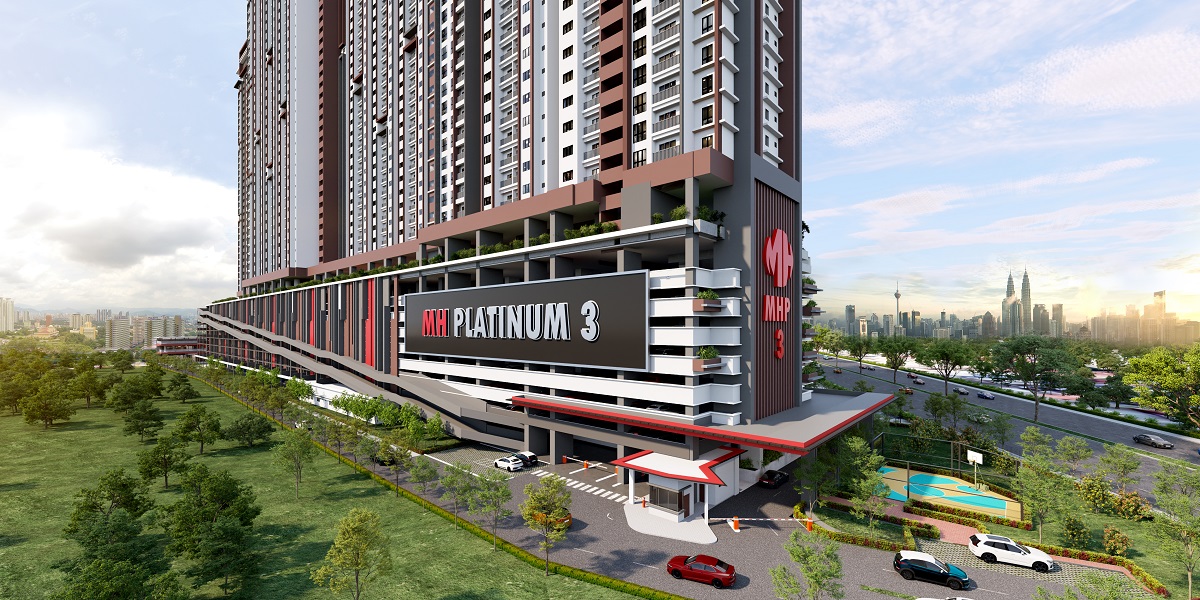THE property market has been hit by another bout of all-round cooling measures. How will this impact sales volume and prices, and will buyers hold off their purchases?
Within hours of the government announcing a seventh round of property cooling measures on the evening of Jan 11, people were rushing to the showflat of La Fiesta, an 810-unit private condominium located at Sengkang Square. By 10pm that evening, the queue of prospective buyers stretched all the way to the carpark, where a tent that could accommodate up to 1,000 people had been erected. They were all eager to snap up a unit before midnight to avoid being hit by the new measures.
La Fiesta is the largest project in terms of gross development value for EL Development, the property development arm of construction company Evan Lim & Co. Up to 700 buyers had already registered interest to purchase units in the project since the showflat opened for private previews on Jan 5. There was strong interest in La Fiesta as the project will be linked to the Sengkang LRT and MRT stations via a covered walkway as well as a regional mall.
Lim Yew Soon, managing director of EL Development, had initially scheduled a public preview of La Fiesta for Jan 15, with units to be sold via a balloting system. However, at about 6pm on Jan 11, when he first heard rumours that new government measures were to be announced later that evening, Lim decided to bring forward the preview. Marketing agents then swung into action and contacted those who had registered interest.
"We were caught off-guard," recounts Lim. "And there was a mad rush for time. So we had no choice but to drop the idea of a balloting system and sell units on a first-come- first-serve basis last Friday [Jan 11]." The developer released 400 units for sale that evening.
The homes at La Fiesta range from 431 sq ft, one-bedroom apartments to 1,765 sq ft, five-bedroom units. The first homes to be snapped up were one-bedroom units, where prices started from $500,000. Most of the buyers were believed to be Singaporeans. To date, options had been issued for 370 units at an average price of $1,150 psf. The sale and purchase agreements have to be signed by Feb 1 for buyers to avoid being subjected to the new measures. "So there will be another mad rush for them to complete the sale by that date," adds Lim.
Although activity at La Fiesta was unprecedented, most developers also reacted to the announcement of the latest measures last Friday by extending the hours at their showflats to midnight "to facilitate last-minute purchases", says Joseph Tan, executive director of residential at CBRE. "January typically records fewer sales but we might see slightly higher sales in January 2013."
What brought on the latest round of property measures?
New home sales volume has remained strong since 2009 despite six rounds of government measures to curb excessive speculation and stem runaway prices. Prior to the release of the December new home sales figures on Jan 15, property consultants were already predicting that 2012 would be a record year with more than 21,000 new homes sold. URA's numbers only confirmed the prediction, with new home sales for 2012 at a historic high of 22,290 units.
The government has also accelerated the release of new residential development sites through the land sales programme over the last two years. According to Minister for National Development, Khaw Boon Wan, in a statement on Jan 11, "A large supply of private and public housing — up to 200,000, will be completed in the coming years."
Besides a record level of housing transactions, "particularly from investment demand", housing prices had also shown signs of "reaccelerating" in both the private residential and HDB resale flat prices, according to a government statement released on Jan 11. The concern is that if price increases are left unchecked, they will lead to a property bubble.
Home prices in 4Q2012 edged up by some 1.8% quarter-on-quarter (q-o-q), as indicated by the flash estimates for the URA private property price index, and 2.5% q-o-q in HDB resale flat prices. "The price rise, while not the strongest since the economic recovery from the global financial crisis, had flown in the face of efforts by the government to cool the residential market," according to Chua Yang Liang, Jones Lang LaSalle's head of Southeast Asia Research.
The overall private residential price index has jumped 59% since it hit a trough in 2Q2009 after the global financial crisis, while the HDB resale price index has been up 45% over the same period.
"The reality we face is that interest rates are extraordinarily low, globally and in Singapore, and continue to add fuel to our property market," commented Deputy Prime Minister and Minister for Finance Tharman Shanmugaratnam on Jan 11. "We have to take this further round of measures now, to check recent market trends and avoid a more serious correction in prices further down the road."
The measures introduced included an increase in Additional Buyer's Stamp Duty (ABSD) across the board by 5% to 7%. Those with an existing mortgage face a higher cash down payment of 25% (instead of 10%) and reduced borrowing limit on their second and third property purchases of 50% and 40% loan-to-value (LTV) ratio respectively. For those with an existing mortgage who want a longer loan tenure of more than 30 years or stretching beyond the age of 65 years, the LTV limit is further capped at 30% and 20% respectively, for their second and third residential property purchases.
New launches the litmus test
All eyes are now on Q Bay Residences located at the junction of Tampines Avenue 1 and 10, which will be launched on Jan 19. The 630-unit Q Bay Residences is jointly developed by a consortium made up of Far East Organization, Frasers Centrepoint and Sekisui House.
The consortium started private previews a fortnight ago. Of the 500 to 600 people who had indicated interest in buying a unit by issuing cheques to property agents, around 100 backed out since the measures were introduced. "The ones who have withdrawn are probably investors who are buying their third or more unit," reckons Cheang Kok Kheong, Frasers Centrepoint Homes' CEO for development and property. "On the other hand, the number of HDB upgraders is increasing. These are the people who are buying to stay."
To offset the increase in ABSD, the consortium is offering a 7% stamp duty discount, which effectively lowers the average price to $985 psf. Absolute prices range from $525,000 for a one-bedroom unit to $1.7 million for a five-bedroom unit. "I suppose that is in line with what the the government wants," says Cheang. "Being responsible developers who are here for the long-term, and given the operating climate, we just have to play ball."
In times of uncertainty, there's a flight to quality, observes Cheang, with homebuyers flocking to developers with an established track record. As long as prices are attractive, homebuyers are able to put the government's measures into perspective, he reckons.
According to Cheang, the majority of the buying interest has been in the larger units, such as the three- and four-bedroom "verandah homes" (units with open kitchen integrated with the living and dining area, and extended out to the balcony), as well as the larger two- and three-bedroom apartments. One-bedroom units, which had previously been popular with investors, have seen more subdued buying interest.
The number of enquiries from permanent residents (PRs) has also risen, notes Elson Poo, general manager of marketing and sales at Frasers Centrepoint Homes. There are many PRs working and living in the Tampines area, with the United World College campus and Temasek Polytechnic located there as well as Tampines Wafer Fab Park and Pasir Ris Wafer Fab Park, he adds.
PRs owning HDB flats who plan to upgrade to private property are required to sell the former within six months. The ABSD has been raised by 5% for PRs buying their first property, and 10% on their second and third. "Those who can afford it will choose to buy private property instead of HDB resale flats with all the inherent restrictions," adds Poo. "This will shift some demand to private housing, which addresses some concerns about rising HDB flat prices."
Like La Fiesta and Q Bay Residences, other new projects that have received approval will go on the market as planned, says CBRE's Tan. The line-up of new launches include Tuan Sing Holdings' Sennet Residence at Potong Pasir; Kingsford Hillview Peak in Hillview Avenue, the maiden project by a group believed to be from Shenyang, China; as well as Urban Vista in Tanah Merah, a joint-venture project between Fragrance Group and World Class Land. "Based on the supply in the pipeline and including current unsold stock, developers are unlikely to launch as many new homes as they did in 2012," he adds. "Moreover, the market is turning cautious amidst economic uncertainties. Therefore, we do not expect new homes take-up in 2013 to exceed 20,000 units."
Tan foresees developers continuing to show strong interest in government land sale sites that have good location attributes. "As with previous measures, developers will be creative in planning unit sizes and maximising unit efficiency, mindful of the overall lump sum payments that investors have to make for their second and subsequent properties," he comments.
Will prices hold?
Chia Siew Chuin, Colliers International's director of research & advisory is predicting new home sales to contract further to 12,000 to 15,000 in 2013. "Only Singaporeans buying their first properties will be spared the new rules," says Chia. She sees many buyers priced out of the market owing to the curbs, while others will stay on the sidelines to assess the impact on the market and their own investment plans. Some buyers may also postpone their purchasing decisions in anticipation of a price correction, she adds.
However, there are some who are not deterred by the new property cooling measures, despite being hit by a hike in the ABSD and reduced borrowing limit. One such buyer is Edmund Tan, a manager of an interior design and architectural firm. He is going ahead with the purchase of his second property, a two-bedroom apartment at Q Bay Residences for $850,000. His first purchase was a three-bedroom unit in Frasers Centrepoint's Palm Isles along Flora Drive, off Upper Changi Road. The project will be completed by end-2014, while Q Bay Residences is scheduled for completion in 2017. "I will eventually stay in the apartment at Q Bay Residences, and rent out the unit at Palm Isles," says the 39-year-old Singaporean. For now, Tan, a bachelor, resides with his parents in the Bedok area.
"Whether it's a car or a property, I prefer to buy something new," says Tan, which explains his interest in buying projects off-plan. He had been looking for a place of his own since last year and decided on a unit at Q Bay Residences as he was "attracted by the water views — with Bedok Reservoir on one side and the Tampines Quarry on the other".
According to market observers, there is a sense of inevitability that prices will continue to increase because of liquidity, low interest rates and rich foreigners coming to Singapore. While prices may still hold up in the near term, "developers may turn desperate if inventory stagnates", cautions Credit Suisse in a research report on Jan 14.
Colliers' Chia doesn't expect prices of private homes to correct significantly in 2013. "Developers' committed costs in land and related outlays, healthy balance sheets, ample liquidity and low interest rates will provide support to prices," she reckons. "As such, private home prices are forecast to remain relatively stable with marginal downside, if prices slip at all."
At the start of the year, Nicholas Mak, executive director of research & consultancy at SLP International projected prices to rise by 3% to 6% in 2013. He has since revised it to -1% to 4%. He still expects HDB flat resale prices to grow by some 3% to 6% this year. He sees the lowering of the mortgage service ratio — from 40% to 35% of gross monthly income for those buying an HDB flat and taking a loan directly from HDB; and a lower limit of 30% for those taking a loan from financial institutions — as a move to encourage prudence, he says, so people will not overstretch their budgets when buying a property.
"Like 2012, the majority of transactions this year will be led by the mass-market launches," says Mak. "If HDB flat resale prices remain firm, it will lend support to the upgraders' market, and hence, mass-market prices."
The segment most likely to suffer further is the Core Central Region (CCR) made up of the prime districts of Orchard Road, Marina Bay, Sentosa Cove and the CBD. Owing to the first ABSD of 10% on foreign buyers introduced in December 2011, transaction volume in the CCR accounted for only 8% of total sales last year. "In 2013, transaction volume is likely to remain at similar levels, or contract even further," says Mak.
Is this a good time to buy?
Victor Ng, a savvy investor who has been in the property market for close to a decade, is going to continue investing in Singapore property despite the measures. "In any market, there are opportunities," says the 40-year-old Singaporean in an email interview. "Great investors buy all the time. I don't follow the crowd. Others buy on the primary market, I buy resale. They buy small units, I buy big units."
The full-time property investor feels that condos and conventional landed homes are now very expensive, and has zoomed in on strata landed homes instead. "Developers are no longer building townhouses within condo projects, so foreigners who want to buy landed houses have to turn to strata landed property, where they still have to get approval from the land dealings department, but it's easier to do so compared with conventional landed property," he observes.
However, unlike Ng, some investors have decided to explore investment opportunities in overseas markets. For instance, projects in the UK that are being showcased this weekend have seen a pick-up in enquiries. The Battersea Power Station project has registered more than 150 interested buyers for just 100 units prior to the launch in Singapore, says Doris Tan, Jones Lang LaSalle's director of international property services, the exclusive marketing agent for the project. Tan notes that there was a spike in enquiries from Singapore buyers after the government announced the latest round of cooling measures on Jan 11.
Stephen Ho, director of international project marketing at CBRE, which is marketing Fulham Riverside on Jan 19 and 20, was also inundated with calls during the weekend after the announcement of the new rules. "It was literally at 9am on Saturday morning when the phone started to go off, and a lot of people who weren't on our database wanted to have more information about the project," he adds. Ho attributes the response to two factors: the latest cooling measures by the Singapore government, and the continued interest in investing in prime London property.
Buying property overseas, however, entails risks, especially for those with limited knowledge of the market, and limited financial resources, says SLP International's Mak. "There's currency risk involved, so you have to monitor currency trends, as well as price and rental trends, especially if you're buying for investment. There's just a lot more monitoring to do."
Governments could also enact measures that could affect foreign buyers, says investor Ng, who confesses that he "isn't fond" of investing overseas. For instance, the Malaysian authorities are now looking at increasing the minimum purchase price for foreigners buying property in Johor from RM500,000 to RM1 million, given the increase in interest from Singapore buyers in projects in Iskandar Malaysia, and the soaring prices there.
While it's still too early to tell, an unintended consequence of the latest round of measures in Singapore could be a reduction in the supply of units in the secondary market. "Many will think twice about selling because it will be more expensive to re-enter the market," says a property market observer. "The last minute rush to buy at La Fiesta and other showflats shows that many people want to be in the boat rather than out. And they definitely don't think it will capsize anytime soon."
This story first appeared in The Edge Singapore weekly edition of Jan 21-27, 2013.
TOP PICKS BY EDGEPROP

The Rainforest @ Eco Tropics
Pasir Gudang, Johor

Taman Nusari Bayu 2, Bandar Seri Sendayan
Seremban, Negeri Sembilan
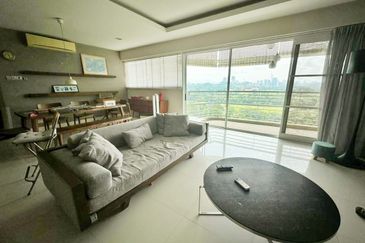
The Plaza Condominium
Taman Tun Dr Ismail, Kuala Lumpur

